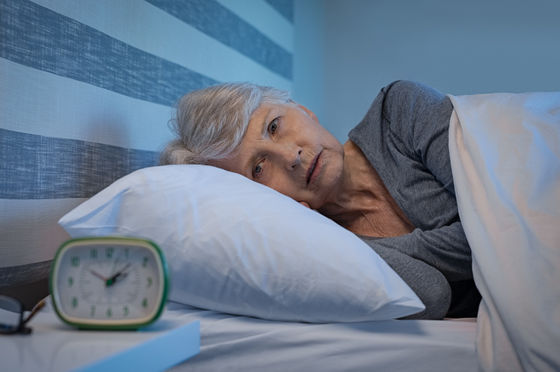A 25-year follow-up study found that people who sleep less than 6 hours are at increased risk of dementia

Previous studies, may be referred to as 'the person who has continued to 6 hours sleep has fallen recognition ability to Drugs that stay up all night without realizing it yourself'
Association of sleep duration in middle and old age with incidence of dementia | Nature Communications
https://www.nature.com/articles/s41467-021-22354-2
Sleeping Less Than 6 Hours a Night Linked to Higher Dementia Risk, Scientists Show
https://www.sciencealert.com/sleeping-less-than-6-hours-a-night-linked-to-higher-dementia-risk-scientists-show
Sleeping less than 6 hours a night in midlife raises risk of dementia 30%, study finds --CNN
https://edition.cnn.com/2021/04/20/health/sleep-dementia-risk-study-wellness/index.html
Studies on the relationship between sleep time and risk of dementia have been done, but many of these studies have a follow-up period of less than 10 years. However, dementia is often thought to be influenced by lifestyles for more than 20 years, so follow-up as long as possible is needed to accurately determine the link between sleep and dementia. You need to do.
Therefore, the research team of Severine Sabia and others, who are studying aging and neurodegenerative diseases at the University of Paris, France, also conducted the Whitehall II study at University College London, which has been conducting long-term research on aging. We also analyzed the relationship between sleep and dementia. The study included not only self-reported subjects, but also accurate sleep time data from wristwatch-type accelerometers worn by some of the subjects while they were asleep, in 7,959 British people since 1985. Was included.

The analysis found that people who slept less than 6 hours at ages 50 and 60 were at higher risk of dementia than those who slept 7 hours. In addition, people in their 50s and 70s who have chronically short sleep times are at a 30% higher risk of dementia, regardless of known dementia risks such as cardiometabolic disorders and mental health problems. It turned out that.
'These findings suggest that shorter sleep times in middle age are associated with an increased risk of late-onset dementia,' the researchers concluded in a treatise.
However, this study only clarified the 'correlation between short sleep time and risk of dementia', but did not show that 'short sleep time causes dementia.' Tom Denning, a dementia researcher at the University of Nottingham in the United Kingdom who is not involved in Sabia's research, told science news site ScienceAlert that 'dementia is caused by changes in the brain. It's not surprising that people with dementia have disturbed sleep patterns. ' CNN, an American news media, also pointed out that 'people with Alzheimer's disease and Lewy body dementias often suffer from insomnia,' and mentioned the possibility that dementia is shortening sleep time. I did.
Based on these points and the results of this study, Sarah Imaricio of the Alzheimer's Research Foundation in the United Kingdom said, 'We do not know how to prevent dementia reliably, but it is possible to reduce the risk. It's about drinking moderately, doing mental and physical activity, and paying attention to a balanced diet, cholesterol levels and blood pressure. '
Related Posts:
in Science, Posted by log1l_ks







